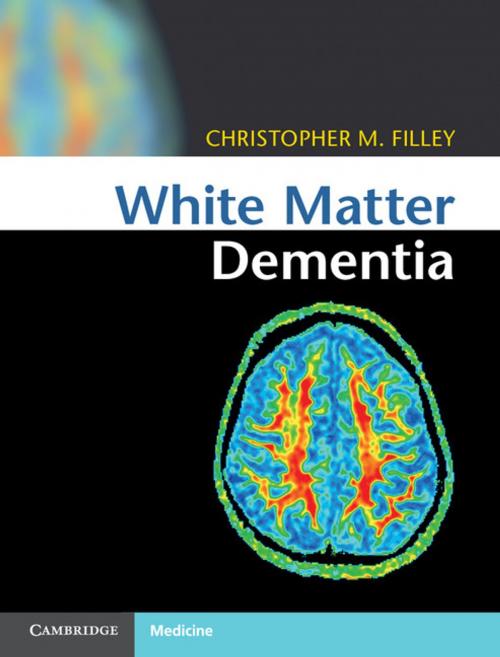White Matter Dementia
Nonfiction, Health & Well Being, Medical, Specialties, Internal Medicine, Neurology, Psychiatry| Author: | Christopher M. Filley | ISBN: | 9781316665039 |
| Publisher: | Cambridge University Press | Publication: | April 28, 2016 |
| Imprint: | Cambridge University Press | Language: | English |
| Author: | Christopher M. Filley |
| ISBN: | 9781316665039 |
| Publisher: | Cambridge University Press |
| Publication: | April 28, 2016 |
| Imprint: | Cambridge University Press |
| Language: | English |
Breaking away from prevailing views of dementia that rely heavily on the role of the cerebral cortex, the new perspective put forth here highlights white matter-cognition relationships, presenting an expanded view of dementia and its neurobiological origins. Based on detailed patient observations, extensive clinical research and an exhaustive literature review, this book discusses the novel concept of white matter dementia, offering hope for better understanding and treatment of dementing illness. Covering topics such as white matter neurobiology, mild cognitive dysfunction and Alzheimer's disease, the author reconsiders brain-behavior relationships and expands the concept of dementia, discussing implications for diagnosis, treatment (medical, surgical, rehabilitative, and psychiatric) and therapeutic innovations aimed at prevention of white matter damage and restoration of myelin. This unique book is an absolute must-have for all medical specialists and consultants in neurology, neuropsychiatry, and neuropsychology involved with the growing challenge of dementia.
Breaking away from prevailing views of dementia that rely heavily on the role of the cerebral cortex, the new perspective put forth here highlights white matter-cognition relationships, presenting an expanded view of dementia and its neurobiological origins. Based on detailed patient observations, extensive clinical research and an exhaustive literature review, this book discusses the novel concept of white matter dementia, offering hope for better understanding and treatment of dementing illness. Covering topics such as white matter neurobiology, mild cognitive dysfunction and Alzheimer's disease, the author reconsiders brain-behavior relationships and expands the concept of dementia, discussing implications for diagnosis, treatment (medical, surgical, rehabilitative, and psychiatric) and therapeutic innovations aimed at prevention of white matter damage and restoration of myelin. This unique book is an absolute must-have for all medical specialists and consultants in neurology, neuropsychiatry, and neuropsychology involved with the growing challenge of dementia.















